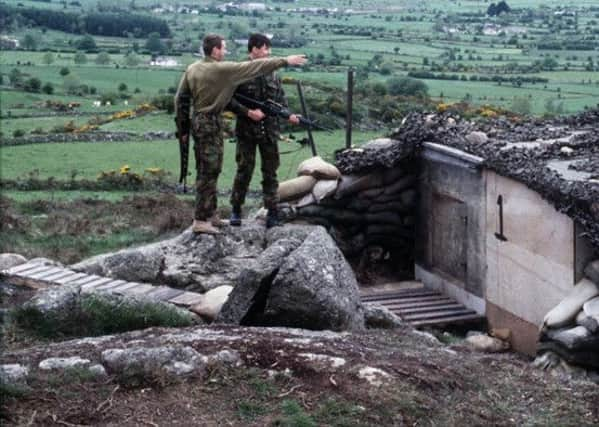AusterityArmy willput troopsat risk


That’s according to the Chair of the Westminster Public Accounts Committee Margaret Hodge, who said the Army wasn’t consulted properly in advance of Army 2020, the ongoing review into the future of British land forces.
Ms Hodge made the comments as the Westminster PAC published a report it’s compiled into Army 2020.
Advertisement
Hide AdAdvertisement
Hide AdShe commented: “The decision to reduce the size of the Army was driven by the need to make financial savings in a time of austerity.
“However, it is remarkable that the Chief of the General Staff was not involved in all stages of the decision-making process given the magnitude and importance of the change required, and its impact on the service which he commands.
“The MoD did not test the feasibility of recruiting and training the 30,000 reserve soldiers it needs by 2019.
“The strength of the Army Reserve has stayed at around 19,000 for the last two years, and we remain to be convinced that the MoD will recruit the required numbers in time.”
Advertisement
Hide AdAdvertisement
Hide AdMs Hodge said the Army told the PAC that recruitment shortfalls were leading to capability gaps and that this was putting pressure on regular troops.
She said: “The Army’s recruiting partner, Capita, missed its regular soldier recruitment target by 30 per cent in 2013-14 and recruited fewer than 2,000 reserves against a target of 6,000. Yet Capita was paid as though it had delivered the full 6,000.
“The MoD’s bungling around the recruitment contract with Capita has meant at least £70 million of the planned £267 million savings from the contract have already been lost.
“There was no clear understanding of the scale of the recruitment challenge, poor information about potential recruits and the MoD did not provide Capita with the IT infrastructure it needed.”
Advertisement
Hide AdAdvertisement
Hide AdShe claimed that the future Army will be even more vulnerable to the “under-manning” common before the recent wars with Iraq and Afghanistan.
She said it was wholly unacceptable that the MoD’s current ‘Plan B’ is to get ‘Plan A’ to work.
“What contingency plans we heard of could have long-term negative consequences. Extended tours of operational service for regulars, for example, could lead to lower morale and more people leaving the regular Army.
“The Department prevented full Parliamentary scrutiny of its Army 2020 plans by withholding timely information from the National Audit Office. This must not happen again,” she said.